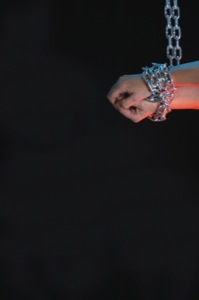
IRONICALLY, JUST A FEW MONTHS after the infamous Don’t Ask, Don’t Tell policy was abolished in the U.S., promising a hoped-for new era of tolerance in the military, the U.N. has published a damning first-ever official report on the state of global human rights for LGBT people and the widespread abuses that continue to exist.
The recently published report from the United Nations Office for the High Commissioner for Human Rights (OHCHR) in Geneva, outlines “a pattern of human rights violations … that demands a response,” and maintains that governments have too often overlooked violence and discrimination based on sexual orientation and gender identity.
Says Charles Radcliffe, global issues section chief for the OHCHR, “The report sets out the ways in which people are susceptible to human rights violations on the basis of their actual or presumed sexual orientation or gender identity – from hate-motivated murder and violence, criminalization, arbitrary detention and torture, through to discrimination in areas like employment, education and health care. What emerges from the plethora of individual cases is a pattern of violence and systematic discrimination directed at individuals because they are, or are assumed to be, gay or lesbian, bisexual, transgender or intersex. It’s a pattern of abuse that can be seen to some extent in all regions of the world and it requires a concerted response – from states and from the United Nations.”
Adds Michael Cole-Schwartz of the Human Rights Commission, “The United Nations report by the High Commissioner for Human Rights is ground breaking as the first U.N. report to recognize the severe and often fatal environments that many LGBT people live in across the globe. The findings of the report provide ample support for including LGBT people in the U.N.’s human rights framework. The U.N. must use this report as a starting point to commission additional research and create a comprehensive plan to address the human rights abuses of LGBT people.”
Dr. Aaron Bruce, chief diversity officer for San Diego State University, is hopeful, saying, “The U.N. Human Rights Council appears somewhat new to this topic. However it seems like they are making solid progress. The Universal Periodic Review (UPR) is the foundation for human rights recommendations that the U.N. makes with member agencies. It is a tool for LGBTI rights that can be respected globally. The core is in partnering with local organizations in the country who understand the realities of social injustices. The report demonstrates the U.N. commitment to the topic of LGBTI rights and the need for significant global progress.”
The report is based on information from such areas as past U.N. reporting, hate crime statistics and reporting by regional organizations and non-governmental organizations.
The question many people ask, though, as a result of the report is what can be done globally to ensure the rights of the LGBT community.
Says Radcliffe, “Several things. First, at a national level, where most of the work needs to be done, governments should recognize that they have not only a moral responsibility but also a legal obligation, under international human rights law, to reform discriminatory laws, prohibit discriminatory practices and protect everyone from violence on the basis of their sexual orientation or gender identity. Civil society on the ground should be closely involved and consulted every step of the way. The United Nations has a role too – both in highlighting areas where change needs to take place, and in supporting the process, through technical assistance. In future, the human rights concerns of LGBT people should be included routinely in U.N. human rights reports, alongside other areas of concern, as well as in the dialogue that takes place with governments and among governments.”
For Radcliffe, legislation is only part of the answer. Social attitudes are also a key. Adds Radcliffe, “While legislative change is important, it’s only part of the picture. LGBT people need laws that treat them fairly and give legal protection from violence and discrimination but in many cases real equality will require a shift in social attitudes as well. That means a concerted effort involving not just governments but civil society and the media. Governments sometimes point to homophobic sentiment in society to try to justify not tackling homophobic violence and discrimination. In fact, the opposite is true; the more homophobic public sentiment is, the more susceptible LGBT people are to human rights violations and the more urgent it is for governments to act.”
Find out who among the world’s LGBT population is most vulnerable to violence, and what ties homophobia-motivated killings for second place in frequency, here in the U.S., behind race-based murders in part two of San Diego LGBT Weekly’s special coverage of the United Nation’s landmark report in next week’s issue. –Ed.











Equality still eludes our gay heroes in uniform. Thanks to DOMA legally married same-sex military spouses are denied health insurance, commissary, housing allowance and other base privileges as compared to their opposite-sex married counterparts. For those interested – http://OUTmilitary.com has been providing a supportive environment for friending, sharing and networking between Gay active military, vets and supporters since December, 2010.
Charles Radcliffe and Aaron Bruce, THANK YOU both for being intersex inclusive and for having the courage to say the word intersex and the intersex-including acronym LGBTI.
LGBT does not include intersex people. Being an intersex person and reading about LGBT instead of LGBTI is an unpleasant experience and sends a signal that we are not wanted.
Using the right word and the right acronym welcomes us instead of ignoring us.